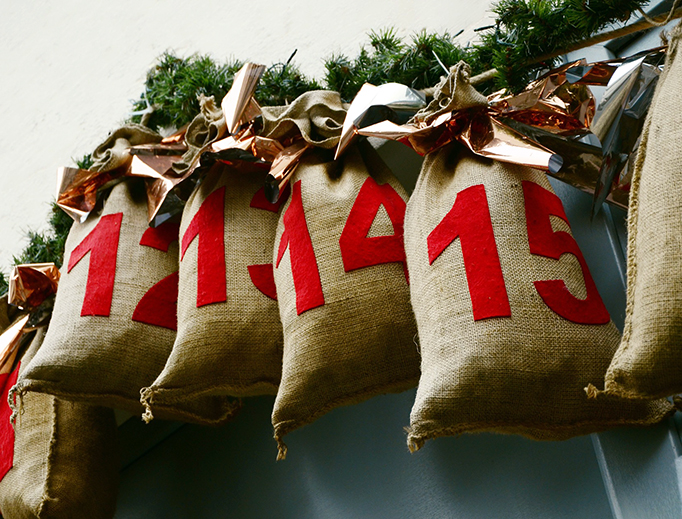Advent: The Other Penitential Season
Our Lord’s humble birth in Bethlehem reminds us not only to help the poor, but to have the virtue of being “poor in spirit.”

Advent is an indulgent season in our culture. Nowadays, there are Advent calendars (sometimes called “holiday countdown calendars”) filled with beauty products and jewelry. Aldi is famous for its wine and beer calendars. Advent calendars used to be for children; they are now popular with adults. “Grown-up” calendars have skin care products, beard oil and hot sauces. Getting gifts is no longer relegated to the celebration of Christmas or Epiphany. However, according to the Church’s liturgical year, Advent is penitential, like Lent, with the same color purple.
It is easy to associate Lent with penance, from Our Lord’s 40-day fast in the desert to his eventual Passion and Crucifixion. Lent begins with ashes, the remembrance of “you are dust, and to dust you return.” On the other hand, Advent seems anything but sackcloth and ashes, with the wreaths, the Christmas tree, houses decked out in lights. Until 1917, there was obligatory fasting and abstinence on the Fridays of Advent. As the days grow shorter, Advent lightens the mood. Lent comes across as Advent’s sober counterpart. The Lenten season prepares us for Jesus’ death, while Advent readies us for his birth in Bethlehem.
There are remnants of Advent’s ascetic tradition. The rose of Gaudete Sunday mirrors the third Sunday of Lent. It is meant for celebration. The traditional Italian Feast of the Seven Fishes on Christmas Eve harks back to meatless days. Clam chowder is a beloved Christmas tradition in historically Protestant New England.
Advent and the Christmas story have ascetic and penitential aspects that are often overlooked in the gaiety of the season. This year, the readings on Sunday are a contrast to the superficial happiness offered by the world. On the first Sunday of Advent, Jesus described his Second Coming (Matthew 24:37-44), his return in glory rather than as a baby in a manger. The second Sunday of Advent describes St. John the Baptist living on locusts and honey in the desert, calling for repentance (Matthew 3:1-12). On Gaudete Sunday, an imprisoned St. John the Baptist sends two of his disciples to find out if his cousin Jesus is truly the promised Messiah (Matthew 11:2-11). The fourth Sunday of Advent has St. Joseph considering divorce when he sees that his fiancée is pregnant with a child who is not his (Matthew 1:18-24). All these readings cover serious subject matter, from divorce and imprisonment, to the end of time and repentance. They teach that lasting joy is found in the Lord, not in this world.
The Incarnation was an incredible act of renunciation. As St. Paul says (Philippians 2:5-8), “Christ Jesus, who though he was in the form of God, did not count equality with God a thing to be grasped, but emptied Himself, taking the form of a servant, being born in the likeness of men. And being found in human form he humbled Himself.” God the Son did not have to become incarnate, or be crucified, to save sinful humanity. He could save people however he desired, yet he chose nine months in Our Lady’s womb and birth in poverty.
Our Lord’s humble birth in Bethlehem (Luke 2:1-7) reminds us not only to help the poor, but to have the virtue of being “poor in spirit” (Matthew 5:3). Being “poor in spirit” is realizing that one’s riches are not in presents, or a full stocking, but in the Kingdom of Heaven. Though Town and Country magazine had a compilation in November of the “Best Luxury Advent Calendars,” Our Lord was not born in grandeur, despite his divine nature. Poor shepherds beheld Heaven’s glory and the newborn Jesus (Luke 2:8-20). They are spiritually rich. In worshipping their Savior, they find their treasure.
The wise men from the East demonstrate repentance and conversion by departing “another way” (Matthew 2:12). The star from the East did guide them to Our Lord and the Virgin Mary (Matthew 2:9-11). They bestowed their gifts, finding their wisdom in God rather than the stars. While they did not find Jesus in a kingly setting, they treated him royally when they gave their gold, frankincense and myrrh. The wise men renounced their superstition, believing in the true King. Like many millennials, they believed in astrology. They had sought their destiny in the stars above. The wise men were materialistic until they surrendered their treasure to the Lord.
St. Francis of Assisi, the creator of the first Nativity scene, understood the significance of Christmas. He practiced more rigorous penances in Advent than in Lent, a counterintuitive concept. To quote the Lord’s Prayer at Mass, “We wait in joyful hope for the coming of our Savior Jesus Christ.” Advent is considered a season of such “joyful hope” in contrast with Lent’s austerity. Awaiting Jesus’ birth is the point of Advent. Pregnancy can be a time of great joy and hope, along with anxiety and discomfort. However, for St. Francis, Advent was a greater season than Lent, because there would be no Passion had Christ not been born. Christ’s birth made salvation on the Cross possible. There would be no Easter glory had there been no Christmas. Jesus’ birth is the greatest gift of all. As Our Lord reminds us, paralleling birth with his Second Coming (John 16:21), “When a woman is in travail she has sorrow, because her hour has come; but when she is delivered of the child, she no longer remembers the anguish, for joy that a child is born into the world.” Jesus’ birth then, as now, brings tidings of great joy.
- Keywords:
- advent

















